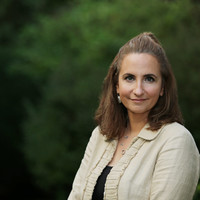Nearly 107 years later, the events of Dec. 25, 1914, commonly known as the Christmas truce, remain mystical, remarkable — but most of all, instructive.
The Great War had only begun in July, but by the Christmas season, the soldiers were tired of battle and likely had expected to be home already.
Many of the fighting men hailed from small European villages, where cars and even electric lights were new arrivals. The scale of the suffering those naive combatants had seen in four short months would be, to modern minds, unimaginable, with 27,000 French soldiers dying in just one bleak August day.
They'd recently been introduced to both chemical weapons and trench warfare, with its concomitant degradations of filth, vermin and disease.
Soaking wet in the muddy trenches they'd dug as "temporary" structures, the denizens of the front line spent the weeks leading up to Christmas bitten by rats, malnourished from disruptions in their supply deliveries and surrounded by the decaying bodies of their comrades.
A traumatized Ernest Hemingway, who as a teenager had driven an ambulance during the war, would later write, "Never think that war, no matter how necessary, nor how justified, is not a crime."
Pope Benedict XV had written to the leaders of the warring nations asking for a cessation in hostilities for Christmas, a request that had been denied. Superiors threatened and admonished men who considered laying down their arms.
And they couldn't have thought well of each other.
German schoolchildren were taught a poem that extolled the values of hating the British, and Rudyard Kipling wrote this in a London newspaper:
"However the world pretends to divide itself, there are only two divisions in the world today — human beings and Germans."
The stakes couldn't have been higher, for even death itself was a risk. The combatants had no guarantees that an overture wouldn't be rebuffed, that they wouldn't be greeted with bullets instead of holiday cheer.
But when Christmas Eve came, the sounds of "Stille Nacht" floated across the frozen No Man's Land.
By the next day, some soldiers were trading whiskey and cigarettes, chatting with one another in broken English and German, maybe even playing friendly games of soccer (if the apocryphal accounts were true).
The respite was brief. Soon, the men had returned to fighting.
But for that one Christmas Day, something had taken place that has not been repeated since. The truce wasn't sanctioned by higher offices, wasn't planned or encouraged.
The men overcame their biases, their direct orders, their fear of death. They overcame their exhaustion and hunger, their deprivation and their distrust.
Soldiers celebrated and sang, played children's games where dead bodies had lain. They ignored their empty bellies and used their rations as presents, handing over their cigars and candy to men who were trying to kill them.
The charity of the rich is weak, for those who have too much give only what they cannot use. The charity of the deprived holds divine power.
The Christmas truce was a miracle of biblical proportions.
We are not, in 2021, fighting one another with tanks and machine guns, but we battle all the same. Our spirits are broken from years of disease, and our biases have been inflamed by the propaganda of war.
We have been made small.
But as the men of the Western Front in 1914 have shown us, none are so small that they might not grow.
We can throw off the chains of our ill will and our sadness. We can rise above, defy our leaders and reach a hand across No Man's Land.
We can be good to one another, if only for one Christmas Day, if only we might try.
To learn more about Georgia Garvey, visit GeorgiaGarvey.com.
Photo credit: 41330 at Pixabay






View Comments